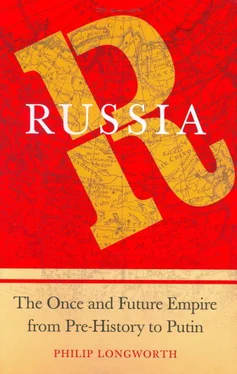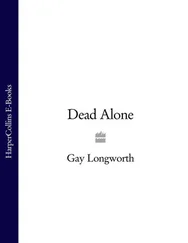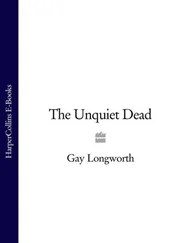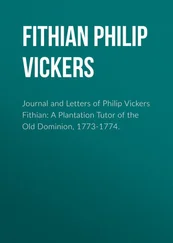The matter came, or was brought, to the attention of foreigners too. The Senate of the Republic of Venice wrote to him in 1473 suggesting that ‘The Eastern Empire, captured by the Ottoman, will with the ending of the imperial male line belong to your illustrious self, thanks to your fortunate marriage.’ 5
Ivan was developing a much clearer and firmer sense of his status. But he had not yet imposed his imperial will over all the Russian principalities. The rulers of Novgorod had seen the danger that Ivan of Moscow posed for them and had moved to pre-empt him. It was this that had precipitated the Muscovite assault. 6Opinion in Novgorod was divided. The Boretskii faction wanted to guard what was left of Novgorod’s independence against any further encroachment and to recover privileges already lost. Since the city could not muster sufficient power to resist the Grand Prince, it asked King Casimir of Poland-Lithuania for assistance. This was tantamount to treason and gave Ivan good cause to intervene. According to a Muscovite chronicler, ‘the entire city became restless and behaved as if drunk.’ 7But Ivan knew he could count on the support of those opposed to the Boretskii faction: the people who saw Moscow as the city’s only reliable source of food and of defence. Rising food prices and anti-war sentiments in Novgorod lent them support. Each party had its stone-hurling street mob to back its cause.
War came, but did not turn out the way Boretskii hoped. King Casimir was preoccupied with affairs in Bohemia and Hungary and failed to send the expected support. Pskov, despite a treaty obligation to Novgorod, joined Ivan against it. The Archbishop of Novgorod advised the army not to resist the Grand Prince’s troops but only those of Pskov who were with him, and the operations of Novgorod’s own army were badly co-ordinated. The campaign was almost a walkover. Ivan appeared magnanimous in victory: his terms were lenient, and he returned to Moscow in triumph to be greeted 4 miles outside the gates by the merchants and the artisan elite as well as by the princes and boyars, and the people of the city. 8
Four years later he returned to Novgorod with more demands. The city’s assembly and the post of mayor were to be abolished. There would be no potential power base for any future Boretskii. And Ivan wanted land too — a great deal of it. Novgorod’s initial response was rejected, but eventually a deal was reached. Ivan would get the lands of Torzhok, an area of strategic importance that included an important portage, and which not only gave access to Novgorod but allowed him to seal off Tver. He was also to receive over 30,000 acres belonging to Novgorod’s archbishop and half the landed property of its six largest monasteries — a total of over 100,000 acres aside from the Torzhok lands.
The opposition would not be reconciled, however, so in 1478 Ivan returned to bombard Novgorod into submission. This time there were arrests, and a hundred men were executed for treason. The Archbishop was implicated too. He was imprisoned in a monastery, and all his property confiscated. 9The acreage at the disposal of the state was now huge, and it is here that a wider aspect of Ivan’s grand strategy becomes apparent. To secure this strategic region on Muscovy’s western frontier, Ivan needed to settle his own men, his own servitors, there. The Grand Prince appropriated about 2.7 million acres of land at a stroke. He retained nearly half of it for himself or the state (no distinction was drawn between the two); on the remainder he settled 2,000 of his people — some of them loyalists from Novgorod, the others outsiders. The idea, which anticipated that of the Irish plantations, had a similar purpose: to establish a politically reliable element of sufficient size to secure the region. The inspiration almost certainly came from Constantinople. Under the late-Roman/Byzantine pronoia system, state land was leased in small parcels in return for service to the state, and was heritable by a son who followed his father into state service.
Ivan seems to have imitated this practice. Under the system he laid down in Novgorod, a servitor was allotted land to support himself in service in the form of a conditional lease, which was heritable on the same condition. The institution, called pomestie in Russian, was to be extended subsequently with a series of deportations and resettlements. Good coin was relatively scarce in Muscovy, and an estate allowed a servitor to support himself and his family without need for cash. Furthermore, transportations and resettlements on a grand scale, especially in vulnerable frontier areas, had also been a late-Roman practice. 10 Pomestie was to allow Ivan to field an army three or four times the size of that which his father, Vasilii, had commanded. It was certainly a practice that was to be much used in Russia in the future. Indeed, it became the mainstay of both civil and military servicemen for generations to come — a major Russian institution: the cornerstone of the Muscovite service state.
It had administrative implications, however. Some time after the state took possession of the land on which servitors were to be settled, a small army of officials descended upon it. In effect they mapped each area, recording its extent, its settlements, its rivers, and the quality and lie of the land in cadastral registers. And the allotments to servicemen were also recorded. Indeed a new office had to be founded in Ivan’s reign to administer the servicemen who held the land, so that they could be called upon, properly armed and equipped, when they were needed. This came to be known as the Muster Office (Razriad), and so vital was it to a Russian ruler that from the beginning it was run not by a boyar, however trusted a counsellor, but by experienced senior secretaries responsible directly to the ruler.
Once affairs in Novgorod were settled, a harder line was imposed on Pskov, and then on Tver, whose Grand Prince Mikhail had sworn loyalty to Casimir of Poland. In the late summer of 1485 Muscovite forces descended on Tver in strength and with a powerful artillery train directed by an Italian in Ivan’s service, Aristotele Fioravanti. The show of overwhelming strength was sufficient to achieve Ivan’s purpose without being used. After suburbs had been set on fire, Tver capitulated. Prince Mikhail fled to Lithuania; the rest of the elite swore oaths of loyalty to Ivan. The oath-taking was not reciprocal. Allegiance to Ivan was not a matter of mutuality; furthermore, it was to extend to his heirs. 11
Nevertheless, authority was imposed in ways that would not arouse more hostility than necessary, and the Grand Prince took care to show grace and favour to those on whom he most depended. As with other principalities that Moscow absorbed, steps were taken to reconcile those who mattered and put them to use, but at the same time the old elite were not neglected. The most important members, including some princes in their own right, were accorded the rank of boyar or of senior counsellor (okolnichii) . These were the most senior people in the Grand Prince’s entourage. Such designations carried with them great prestige and privilege. They also gave the heirs of those so honoured the expectation of a similarly high place in the pecking order for court ceremonies as well as for judicial and administrative positions, and even military campaigns. There were no more than a dozen members of this exclusive order at this juncture. 12Subsequently it was to develop into a great council of state. Muscovy was already acquiring some institutions that were to facilitate the running of an empire.
While Ivan was extending and strengthening his government’s hold over territories settled by Russians and ruled by other descendants of Riurik, he was also establishing Russia’s position as a European power. The fact that he succeeded in making his mark with most other crown heads seems truly astonishing, given the obstacles. Russia, after all, was relatively isolated from the rest of Europe, which was mostly Catholic; the Orthodox Church encouraged an aversion to things foreign, including languages and learning, and there was a substantial and growing culture gap separating Russia from western Europe. True, foreign powers — including the papacy — made part of the running, trying to involve the Grand Prince in alliances and other schemes to promote their interests, but Ivan was always firmly engaged in pursuit of his own interests, which often placed him in an adversarial relationship with others. How, then, did he succeed in mediating these problems, conducting a successful foreign policy, and, in the process, creating an efficient diplomatic establishment?
Читать дальше





![Stephan Orth - Behind Putin's Curtain - Friendships and Misadventures Inside Russia [aka Couchsurfing in Russia]](/books/415210/stephan-orth-behind-putin-s-curtain-friendships-a-thumb.webp)





